Cybersecurity is one of the high-demand careers, and it requires reliable laptops to handle data protection, penetration testing, ethical hacking, packet sniffing, and running virtual machines smoothly. However, the need for the best cyber security laptops in 2025 has increased rapidly, as both students and professionals seek powerful laptops that can handle demanding tasks because weak computers cannot prevent attackers from breaching security.
The best laptops for cybersecurity are expected to have a high-performance processor, sizable RAM, long-lasting battery life, and high-resolution displays, to be able to run cybersecurity tools like Metasploit, Wireshark, and Nmap and powerful laptops like Dell XPS 15, Lenovo ThinkPad X1 Carbon, and MacBook Pro M3 are perfect devices with all the needed features.
Cyber threats are increasing daily, and cybersecurity students or professionals need powerful laptops with highly secure features like Trusted Platform Module (TPM) and compatibility with other security testing tools. Choosing the right laptop for cybersecurity is essential, as it not only enhances your workflow but also keeps you ahead of the game during complex operations.
In this blog post, we’ll delve into the best laptops for cyber security 2025 and everything you need to know.
Cybersecurity Laptop Requirements: What to Always Look Out For
Here are the requirements for any suitable cyber security laptops. So, before going for any cybersecurity laptop, here are the features you should always look out for:
1. Processor (CPU)
As a cybersecurity professional or student, you need laptops with high-performance processors like the Intel i7/i9 or AMD Ryzen 7/9 for running virtual machines and other heavy security tools. Then, for Apple users, Apple’s M1/M2 is perfect.
2. RAM (Large Memory)
An ideal cybersecurity laptop is expected to have at least 16 GB, preferably 32GB or higher, to run heavy virtual machines and multiple applications at the same time.
3. Storage
For storage capacity, efficiency, and speed, go for a 512 GB SSD drive. Please always go for a Solid State Drive (SSD) because they are faster and more reliable than a Hard Disk Drive (HDD). SSD also supports Encryption, which is a plus.
4. GPU (Graphics Card)
As a cybersecurity professional, you need a laptop with a Graphics card like the NVIDIA GeForce RTX or AMD Radeon, because they are useful for simulation and password cracking.
5. Battery life
Another essential requirement for cyber security laptops is the battery life. As a cybersecurity professional, you need a laptop with a long-lasting battery life of 8 to 10 hours or above. This helps to keep you on the go even when you’re far from your office for a stretched period of time.
6. Security Features
A laptop with built-in security features is essential for a cybersecurity professional for the security of sensitive information. You need laptops with security features like TPM 2.0 (Trusted Platform Module), fingerprint scanners, IR scanners, and secure boot support. Also, BitLocker and iPassword are powerful features you need for password security.
7. Operating System Compatibility:
As a cybersecurity professional, you need a good laptop that supports operating systems like Windows for enterprise apps like BitLocker, Linux (Parrot or Kali Linux) for penetration testing, and dual booting for flexibility and running all necessary tools. Though most people prefer the Mac OS because of its high security but it is not compatible with most security testing tools compared to Windows and Linux OS.
Best Cyber Security Laptops in 2025
Here is a list of the 10 best cybersecurity laptops in 2025 for both cybersecurity students and professionals. These laptops are reliable and powerful for cybersecurity professionals, whether you need them for running virtual machines, penetration testing, ethical hacking, or any other data protection tasks.
1. Dell XPS 15 (2025 Edition)
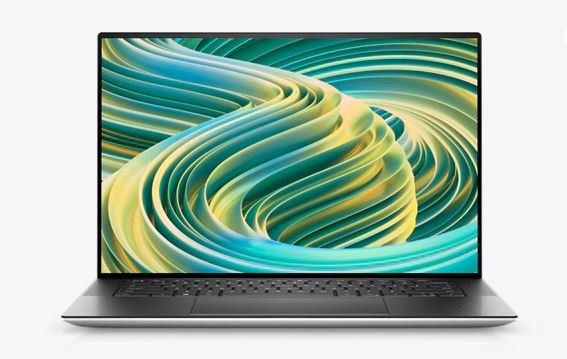
Summary:
- RAM: 8GB to 64GB
- Processor: Intel Core i5 to Core i9 (13th Generation)
- Storage: 512GB to 4TB SSD
- Battery Life: 18 hours
- Other Features: Supports Linux and has excellent build quality.
The Dell XPS 15 (2025 Edition) is an excellent choice for cybersecurity professionals due to its high-performance features. The Dell XPS 15 comes with the latest Intel Core i7 and i9 processors, a dedicated NVIDIA GeForce RTX graphics card, ample RAM, and high storage Capacity to handle any cybersecurity tasks.
Another strong feature of the Dell XPS 15 is the battery life. It has a 3 to 6-cell battery that can last for 18 hours. This machine has hardware security features like the fingerprint reader, IR camera for facial recognition, biometric power button, and Trusted Platform Module (TPM 2.0), making it a top choice for cybersecurity.
2. Lenovo ThinkPad X1 Carbon (12th Gen)
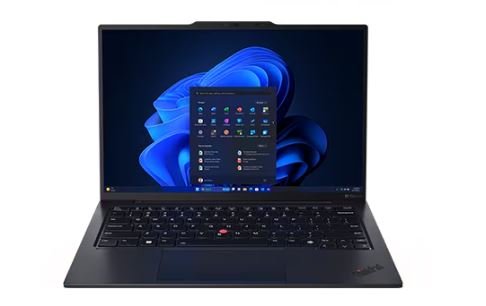
Summary:
- RAM: 8GB to 64GB
- Processor: Intel Core i5 to Core i7 (13th Generation)
- Storage: 512GB to 2TB SSD
- Battery Life: 10 hours
- Other Features: Robust security features, MIL-STD durability, lightweight.
Another powerful cybersecurity laptop is the Lenovo ThinkPad X1 Carbon. It is known for its powerful security features, such as the fingerprint reader, dTPM 2.0, IR webcam privacy shutter, and Firmware shield for extra security. It is a lightweight device with MIL-STD durability. The Lenovo ThinkPad X1 Carbon is powered by the Intel Core i7 processor and features the NVIDIA RTX 4060 graphics card, making it well-suited for password cracking, a crucial task for cybersecurity professionals.
3. Apple MacBook Pro M3 (16-inch)
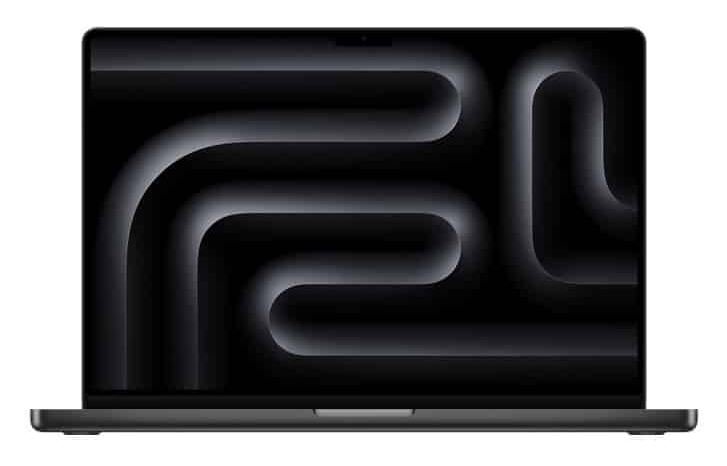
Summary:
- RAM: 18GB to 36GB
- Processor: Apple M3 Pro Chip
- Storage: 512GB to 1TB SSD, but can be configured to 2TB, 4TB, or 8TB.
- Battery Life: 15 to 22 hours
- Other Features: Retina XDR display, ProMotion technology, 1 billion colors.
Apple devices are usually known for their robust security features, and the Apple MacBook Pro M3 (16-inch) is no exception, providing additional security layers for cybersecurity professionals, especially the T2 chip for secure boot and encryption. The Apple MacBook Pro M3 is powered by the Apple M3 Pro Chip, which provides swift processing power and efficiency.
Other amazing features of the MacBook Pro M3 are the ProMotion technology for adaptive refresh rate and a 16.2-inch Liquid Retina XDR display. This machine can run several virtual machines and complex tasks, making it one of the best cybersecurity laptops.
4. ASUS ROG Zephyrus G16 (2025) GU605
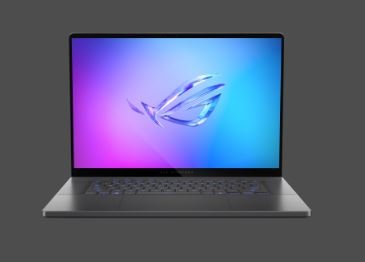
Summary:
- RAM: 64GB
- Processor: Intel Core i9
- Storage: 64GB to 2TB SSD
- Battery Life: 15 to 22 hours
- Other Features: High GPU power for hacking simulations, AI features like DLSS 4.
The ASUS ROG Zephyrus G16 (2025) GU605 is another powerful laptop for cybersecurity professionals, featuring the NVIDIA GeForce RTX 5090 graphics card, making it an ideal choice for penetration testing and ethical hacking. This machine runs on the Intel Core i9 processor.
Although the ASUS ROG Zephyrus G16 (2025) GU605 was originally designed as a gaming laptop, it is also an ideal choice for cybersecurity simulations due to its robust security features, including the TPM 2.0 and fingerprint reader, to run virtual machines and encryption programs.
5. HP Spectre X360 2025
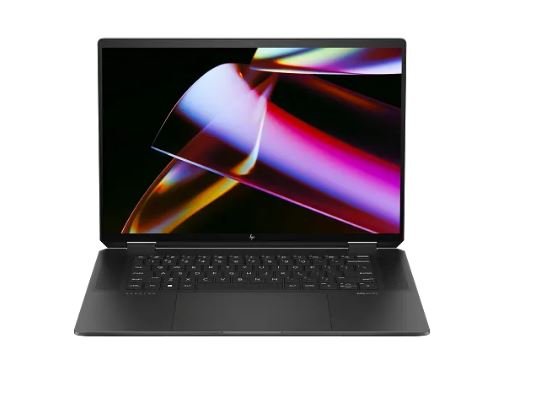
Summary:
- RAM: 16GB
- Processor: Intel Core i7
- Storage: 512GB to 1TB SSD
- Battery Life: 18 hours
- Other Features: Touch screen.
The HP Spectre X360 2025 is a portable laptop with strong security encryption features to run heavy virtual machines and other complex security tasks. Its 120Hz refresh rate is another powerful feature of this device.
For cybersecurity purposes, the HP Spectre X360 2025 comes with security features like the fingerprint reader, TPM 2.0, and Windows Hello facial recognition, making it one of the best convertible cybersecurity laptops in 2025.
6. Framework Laptop 16 (2025)
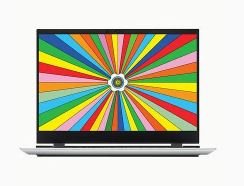
Summary:
- RAM: 96GB
- Processor: Ryzen AI 7 350
- Storage: 512GB to 10TB SSD
- Battery Life: 18 hours
- Other Features: It is customizable.
The Framework laptops 16 (2025) is one of the best customization laptops for cybersecurity with powerful security features. This device is powered by an NVIDIA GeForce RTX 5070 GPU for running several virtual machines and other heavy tasks, like penetration.
Additionally, the Framework Laptop 16 is an ideal choice for a cybersecurity professional due to its security features, like a Fingerprint Reader compatible with Windows Hello and libfprint in Linux. The Framework laptop 16 is an eco-friendly machine that can be customized to your preferred choice.
7. MSI Stealth 15M (2025)
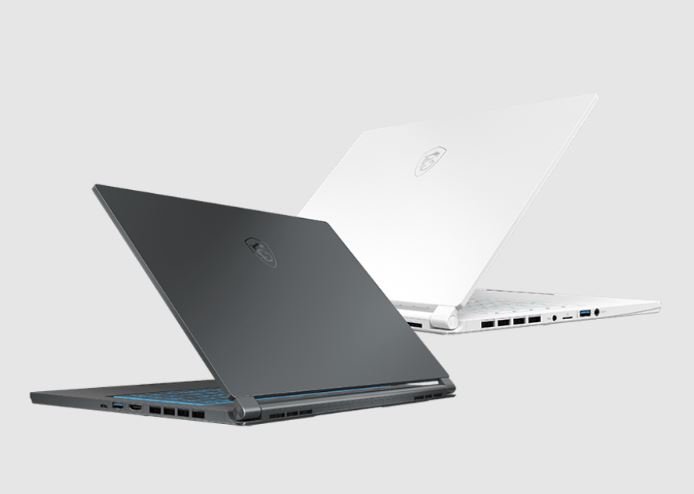
Summary:
- RAM: 32GB
- Processor: Intel Core i7 (11th Gen)
- Storage: 1TB SSD
- Battery Life: 1 to 2 hours
- Other Features: Cooler boost technology
MSI Stealth 15M is a high-performance thin and lightweight laptop that has a powerful processor and supports heavy workloads. This device runs on the NVIDIA GeForce GTX 1660, which is suitable for performing certain cybersecurity tasks like penetration and ethical hacking. The MSI Stealth 15M also comes with the firmware Trusted Platform Module (TPM) 2.0.
8. Acer Predator Helios 18
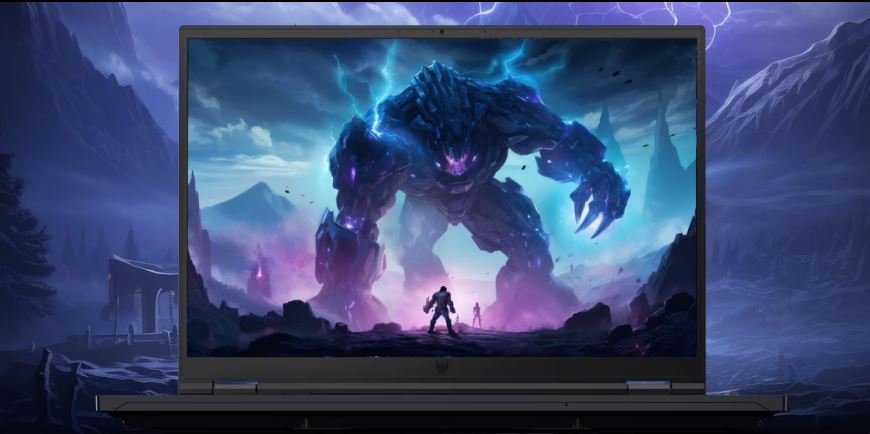
Summary:
- RAM: 32GB
- Processor: Intel Core i9
- Storage: 512GB to 1TB SSD
- Battery Life: 4 to 5 hours
- Other Features: GeForce RTX 4090, 18-inch screen size.
The Acer Predator Helios 18 is a high-performance gaming laptop that is also suitable for cybersecurity tasks. Its robust features, like the GPU, high refresh rate. This laptop also comes with security features like Windows Hello and TPM, making it a solid choice for cybersecurity professionals to run virtual machines and other encryption programs.
9. Razer Blade 16 (2025)
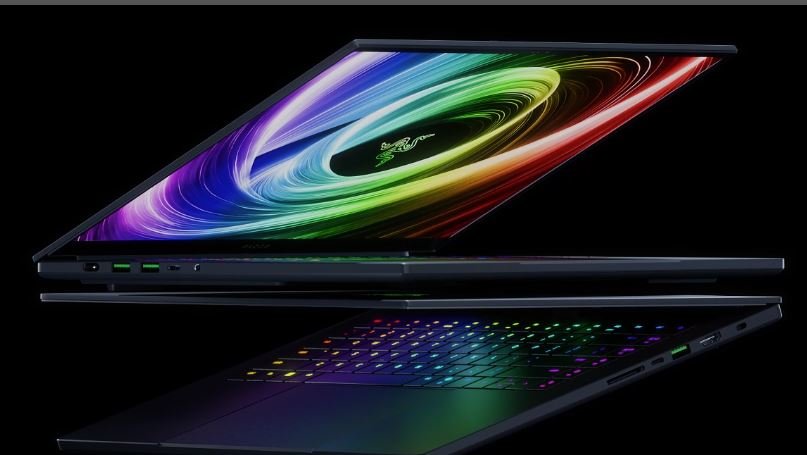
Summary:
- RAM: 16GB to 64GB
- Processor: AMD Ryzen
- Storage: 1TB to 4TB SSD
- Battery Life: 8 to 10 hours
- Other Features: Modern standby, 16-inch display.
Another best cybersecurity laptop is the Razer Blade 16 (2025), a thin, smart, and portable high-performance gaming laptop that’s also fit for cybersecurity tasks. It features the NVIDIA GeForce RTX 5090 GPU, making it a suitable device for running virtual machines and penetration.
The Razer Blade 16 (2025), aside from being a gaming laptop, is equally suited for cybersecurity tasks due to its high-performance processor and advanced security features like Windows Hello, the TPM 2.0, and BitLocker for secure booting.
10. Microsoft Surface Laptop Studio 3
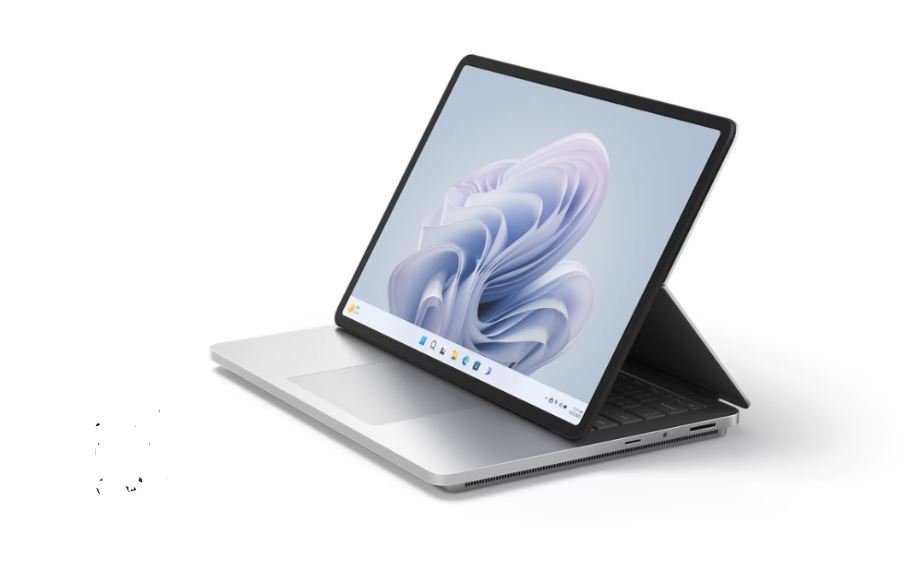
Summary:
- RAM: 16GB to 64GB
- Processor: Intel Core i7 (13th Gen)
- Storage: B to 42TB SSD
- Battery Life: 16 to 19 hours
- Other Features: touch screen and portability.
The Microsoft Surface Laptop Studio 3 is a powerful laptop for cybersecurity professionals. It comes with the NVIDIA GeForce RTX 4050 GPU for easy threat detection and analysis, which is very crucial for cybersecurity professionals. It also features additional security measures, including Windows Hello face sign-in and TPM 2.0, providing an extra layer of security. It is an ideal machine for multitasking.
Best laptop for cybersecurity by Category
- Best for Students: HP Spectre X360, Dell XPS 15, HP Elite Dragonfly, Dell Latitude, Asus Zenbook.
- Best laptop for cybersecurity Professionals: Dell XPS 15, Lenovo ThinkPad X1 Carbon, MacBook Pro M3.
- Best for Ethical Hackers: ASUS ROG Zephyrus G16 (GPU power).
- Best Budget laptop for Cybersecurity: Acer Predator Helios 18, Acer Aspire 5, or Acer Swift 3.
- Overall Best Laptop for Cybersecurity: Dell XPS 15.
Is MacBook Good for Cybersecurity students?
Yes, MacBook is very good for cybersecurity students due to its robust security features, but the hassle is that it is not compatible with many penetration testing tools, requiring the use of virtual machine software to run certain Linux tools, which might be frustrating and confusing to cybersecurity students. It is advisable to consider the Windows laptop over the MacBook, especially if you are a student.
Conclusion: Best Cyber Security Laptops 2025
Want to get the best cyber security laptops 2025? Then you can go for either Dell XPS 15, Lenovo ThinkPad X1 Carbon 12th Gen, or MacBook Pro M3; they are the top choices with features like high performance, security-focused features, and penetration testing powers, suitable for students, professionals, CISOs, and ethical hackers.
Getting a better laptop as a cybersecurity student or professional keeps you ready for any cyber war. Whether you need the laptop for penetration testing, packet analysis, or running virtual VMs, getting the right laptop is the key.
Secondly, your choice of laptop should be based on what you need it for, but generally, all cybersecurity laptops must support cybersecurity tools like Metasploit, Wireshark, Nmap, Splunk, etc. So, always go for the right laptops as a cybersecurity student or professional.

